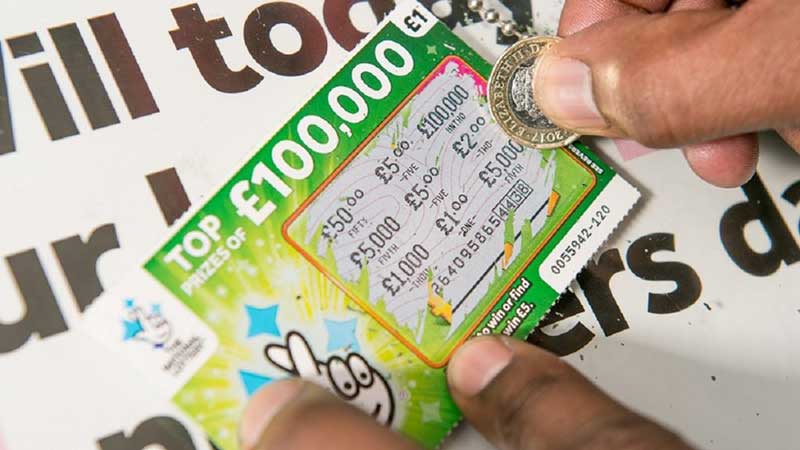Your Guide to the Lottery Gaming Commission – Play Smart
If you’re a fan of lottery gaming, then you’ve likely heard of the lottery gaming commission and the important role it plays in ensuring fair play and player protection. But what exactly is the lottery gaming commission, and what is its relationship with state lottery commissions? And how do lottery regulations impact the industry? In this guide, we’ll answer these questions and more, providing you with a comprehensive understanding of the lottery gaming commission and how to play smart.
Key Takeaways:
- The lottery gaming commission is a governing body responsible for regulating lottery operations and protecting players.
- State lottery commissions work in conjunction with the lottery gaming commission to oversee lottery gaming and ensure compliance with regulations.
- Lottery regulations are in place to maintain the integrity of the lottery system and protect players from fraudulent activities.
- By understanding the role of the lottery gaming commission and abiding by regulations, players can enjoy a safe and responsible lottery gaming experience.
Understanding the Lottery Gaming Commission
If you are a fan of the lottery, then you have probably heard of the lottery gaming commission. This regulatory body plays an essential role in ensuring that lottery operations are fair and transparent. But what exactly is the lottery gaming commission, and what are its functions?
The lottery gaming commission, also known as the gaming commission, is a regulatory body that oversees lottery operations. Its primary role is to ensure that lottery games are conducted fairly, and that players have a chance to win. The commission also regulates the lottery industry by establishing rules and guidelines for lottery operators to follow.
The Functions of the Lottery Gaming Commission
The lottery gaming commission has several functions that are critical to the operation of the lottery industry. These functions include:
- Establishing regulations and guidelines for lottery operators to follow
- Licensing and regulating lottery operators
- Enforcing gaming laws and regulations
- Protecting the integrity of the lottery system
- Managing lottery governance and oversight
The lottery gaming commission works closely with state lottery commissions to ensure that lottery operations are conducted in accordance with the law. It also collaborates with other authorities and agencies to investigate any allegations of fraud or misconduct in the industry.
Lottery Governance and Oversight
Lottery governance and oversight are critical components of the lottery gaming commission’s functions. These activities involve ensuring that lottery operators comply with the regulations and guidelines that the commission has established. Lottery governance also involves managing risks associated with lottery operations, such as fraud and money laundering.
The lottery gaming commission works closely with state lottery commissions to provide oversight of lottery operations. This includes conducting audits of lottery operators to ensure that they are complying with regulations and guidelines. The commission also investigates any complaints or allegations of misconduct in the industry.
Lottery Regulations
Lottery regulations are another critical area of the lottery gaming commission’s functions. These regulations establish rules and guidelines for lottery operators to follow, such as the types of games that they can offer and the prizes that they can award. The commission also regulates the advertising and marketing of lottery games to ensure that they are not misleading or deceptive.
Lottery regulations are enforced by the lottery gaming commission and state lottery commissions. Operators that fail to comply with these regulations may face penalties, such as fines or suspension of their lottery license.
“Lottery regulations are critical to ensuring that lottery games are conducted fairly and that players have confidence in the integrity of the system.”
In conclusion, the lottery gaming commission plays a vital role in ensuring that the lottery industry is fair and transparent. Its functions include regulating lottery operations, enforcing gaming laws and regulations, and managing lottery governance and oversight. By working closely with state lottery commissions and other authorities, the commission helps to protect players and the integrity of the lottery system.
The Role of State Lottery Commissions
State lottery commissions serve a vital role in the lottery industry, responsible for regulating and licensing lottery operators, ensuring fair play, and managing the administrative aspects of lottery gaming.
Lottery regulations vary by state, as each commission has the authority to establish its own unique set of rules and guidelines. However, all state lottery commissions are required to uphold standards that promote transparency and protect the integrity of the lottery system.
One important aspect of state lottery commissions is lottery licensing. This involves a rigorous application and review process that aims to determine whether prospective lottery operators meet the necessary requirements to operate legally. These requirements may include background checks, financial disclosures, and compliance with established lottery regulations.
Once licensed, lottery operators are subject to ongoing oversight and regulation by state lottery commissions. This includes regular audits and inspections to ensure that lottery games are conducted fairly and in accordance with established rules. In the event of any discrepancies or noncompliance, state lottery commissions have the power to investigate and enforce penalties, such as fines or revocation of licenses.
Lottery administration is another key responsibility of state lottery commissions. This involves managing the day-to-day operations of the lottery system, including the sale of tickets, distribution of prizes, and the development of new games. State lottery commissions also work to educate the public about responsible gaming practices and provide resources for those who may be at risk of developing gambling addictions.
Overall, state lottery commissions play a critical role in ensuring the fairness, transparency, and integrity of the lottery industry. By upholding rigorous regulations and providing oversight and guidance, these commissions help to protect players and maintain public trust in the lottery system.
Understanding Lottery Governance and Oversight
Lottery governance and oversight are critical to maintaining the integrity of the lottery industry. By แนะนำเพื่อนเล่นหวย ensuring that gaming laws are followed, transparency is maintained, and oversight is in place to protect players, lottery authorities can foster a safe and enjoyable gaming environment.
The lottery authority is responsible for enforcing the gaming laws and ensuring that all lottery operations are conducted fairly. Additionally, the lottery authority is responsible for granting licenses to lottery operators and overseeing their activities to ensure compliance.
The state lottery commission plays a crucial role in lottery governance and oversight. These commissions are responsible for overseeing the regulation and administration of the lottery industry in their respective states. They are also responsible for ensuring that the lottery remains transparent and that the proceeds go towards public welfare.
Lottery oversight is also important in protecting the players. The state lottery commission is responsible for ensuring that players have access to fair and honest games, as well as ensuring the security of transactions and the protection of personal information.
Gaming Laws
Gaming laws are a critical component of lottery governance and oversight. They ensure that lottery operators follow strict guidelines and that players have a fair and transparent gaming experience. Gaming laws also ensure that the lottery is operated in a socially responsible manner and that the proceeds benefit the greater good.
State gaming laws outline the rules and regulations that lottery operators must follow to ensure compliance with the law. These laws may include licensing requirements, minimum payout percentages, and maximum bet limits, among others.
State Lottery Commission
The state lottery commission is responsible for overseeing the lottery industry in their respective states. They are responsible for licensing lottery operators, regulating lottery sales, and enforcing gaming laws. Additionally, the state lottery commission is responsible for auditing lottery operations to ensure that they comply with regulations and that the proceeds benefit the public.
The state lottery commission is also responsible for ensuring that lottery proceeds are allocated towards public welfare. This may include funding for education, healthcare, and other state-funded programs.
Lottery Authority
The lottery authority is responsible for enforcing gaming laws and ensuring that all lottery operations are conducted fairly. They are also responsible for granting licenses to lottery operators and overseeing their activities to ensure compliance. Additionally, the lottery authority is responsible for investigating complaints and allegations of misconduct in the lottery industry.
“Lottery governance and oversight are critical to maintaining the integrity of the lottery industry.”
- Gaming laws ensure that lottery operators follow strict guidelines and provide a fair and transparent gaming experience to players.
- The state lottery commission oversees the regulation and administration of the lottery industry and ensures that lottery proceeds benefit the public.
- The lottery authority enforces gaming laws and ensures that lottery operations are conducted fairly and with integrity.
By focusing on lottery governance and oversight, the lottery industry can maintain its integrity and provide a safe and enjoyable gaming experience to players. When playing the lottery, it’s important to understand the role of the lottery authority, state lottery commission, and gaming laws to ensure a seamless and secure gaming experience.
Navigating Lottery Regulations
Lottery regulations are a critical component of the lottery gaming industry. Without these regulations, lotteries operated by various entities would not have any standards to follow, and players would be at risk of being cheated or misled.
Gaming laws vary from state to state, so it’s essential to thoroughly understand the lottery regulations in your area. These regulations cover a wide range of topics, including lottery licensing requirements, game rules and procedures, advertising guidelines, and prize payout policies.
For example, in some states, lottery operators must provide detailed information about the odds of winning various prizes on their website and in stores. In other states, lottery advertising must include a disclaimer stating that playing the lottery is not a guaranteed way to make money.
Licensing Requirements
In addition to regulations, state lottery commissions oversee the licensing of lottery operators. Lottery licensing ensures that those who are running lotteries are qualified and that they follow the necessary procedures for conducting a fair and secure game.
The process of obtaining a lottery license typically involves submitting an application, undergoing a background check, and meeting specific financial and security requirements. The state lottery commission will also monitor the licensee’s performance and compliance with regulations.
Compliance with Regulations
Lottery operators must ensure their compliance with all relevant regulations to maintain their license and protect the players’ interests. In addition to following the rules and procedures for the lottery games themselves, lottery operators must also adhere to advertising and marketing guidelines.
For instance, some states prohibit the use of celebrities in lottery advertising, while others require that all lottery advertising and promotions include a responsible gaming message. The state lottery commission will monitor and enforce compliance with these regulations.

Ensuring a Seamless Lottery Gaming Experience
Playing the lottery is an exciting experience, but it’s important to understand the regulations and laws put in place by the lottery gaming commission and state lottery commissions. By following these rules, you can ensure a safe and seamless gaming journey.
The lottery gaming commission is responsible for enforcing gaming laws and regulations. This includes overseeing lottery administration, licensing, and ensuring fair play for all players. Understanding these regulations is crucial for players who want to enjoy a secure and fulfilling lottery experience.
Gaming laws are designed to protect players and maintain the integrity of the lottery system. These laws are enforced by both the lottery gaming commission and state lottery commissions. It’s important to familiarize yourself with these laws and understand how they apply to your gaming experience.
State lottery commissions are responsible for regulating and licensing lottery operators. They also manage the administrative aspects of lottery gaming. By engaging with these commissions, you can stay informed about lottery regulations and ensure that you’re playing with a licensed and reputable operator.
To ensure a seamless lottery gaming experience, it’s important to play responsibly. This means setting limits on your spending and sticking to them. You should also avoid chasing losses and remember that the lottery is a game of chance. By playing smart and following the regulations set forth by the lottery gaming commission and state lottery commissions, you can enjoy a safe and enjoyable gaming experience.
Conclusion
By now, you should have a thorough understanding of the lottery gaming commission and its significance in the lottery industry. Remember to always play smart and abide by the regulations established by state lottery commissions.
Play Responsibly
Lottery gaming is meant to be a fun and entertaining experience. However, it’s essential to play responsibly and not let the excitement of potentially winning affect your judgment. Remember to set a budget, stick to it, and avoid chasing losses.
Stay Informed
Make sure to stay informed about the latest developments in the lottery industry and the laws and regulations governing it. This includes regularly checking for updates on your state lottery commission’s website, reading relevant news articles, and keeping an eye out for any changes that may impact your lottery gaming experience.
Have Fun
Most importantly, remember to have fun! Lottery gaming can be an enjoyable way to pass the time and potentially win a prize. By playing smart, abiding by the rules, and staying informed, you can ensure a safe and seamless lottery gaming experience.
FAQ
What is the role of the lottery gaming commission?
The lottery gaming commission is responsible for overseeing and regulating the lottery industry to ensure fairness, transparency, and player protection.
What are state lottery commissions?
State lottery commissions are governing bodies that regulate and license lottery operators, manage administrative tasks, and enforce gaming laws within their respective states.
What regulations govern the lottery industry?
The lottery industry is governed by various regulations that ensure fair play, protect players, and maintain the integrity of the lottery system. These regulations are enforced by state lottery commissions.
Who oversees the lottery operations?
Lottery operations are overseen by lottery authorities and governing bodies responsible for enforcing gaming laws, maintaining transparency, and protecting players. State lottery commissions play a crucial role in this oversight.
What is the licensing process for lottery operators?
Lottery operators must go through a licensing process overseen by state lottery commissions. This process ensures that operators meet the necessary requirements, adhere to regulations, and maintain the highest standards in running lottery games.
How can I have a seamless lottery gaming experience?
To have a seamless lottery gaming experience, it is important to understand gaming laws, follow regulations set by state lottery commissions, and engage with authorized operators. This will help ensure a safe and enjoyable journey in the world of lotteries.








